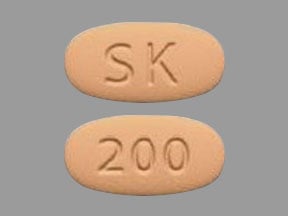
Xcopri Coupons & Savings Card – Discount Prices from $1173.46
My prescription
Edit
200MG, Xcopri (30 Tablets)
Select pharmacy

CVS
$1234.26
COUPON PRICE
Albertsons
$1173.46
COUPON PRICE
Walmart
$1247.94
COUPON PRICE
Walgreens
$1248.68
COUPON PRICEXcopri savings card
Show this card to your pharmacist
Albertsons
$1173.46
BIN
ID
PCN
GRP
015995
LHKPY242290
GDC
DR33
Powered by
Related anti-epileptics prescriptions
More prescriptions for epilepsy
Related anti-epileptics prescriptions
More prescriptions for epilepsy
Price history for Xcopri
30 Tablets, 200MG
Average retail price for Xcopri
Average SaveHealth price for Xcopri
Our price history data is based on aggregated prescription data collected from participating pharmacies in America. Our prescription data updates daily to reflect the latest price changes. If you notice a missing data point, it means there wasn't sufficient data available to generate a monetary value for that date.
*Retail prices are based on pharmacy claims data, and may not be accurate when we don't have enough claims.
Xcopri dosage forms
Dosage Quantity Price from Per unit 25MG 30 Tablets $1211.05 $40.37 50MG 30 Tablets $1211.99 $40.40 100MG 30 Tablets $1212.92 $40.43 150MG 30 Tablets $1213.18 $40.44 200MG 30 Tablets $1213.24 $40.44
| Dosage | Quantity | Price from | Per unit |
|---|---|---|---|
| 25MG | 30 Tablets | $1211.05 | $40.37 |
| 50MG | 30 Tablets | $1211.99 | $40.40 |
| 100MG | 30 Tablets | $1212.92 | $40.43 |
| 150MG | 30 Tablets | $1213.18 | $40.44 |
| 200MG | 30 Tablets | $1213.24 | $40.44 |
What is Xcopri used for?
Xcopri is used for the treatment of partial-onset seizures in adults with epilepsy.
Is Xcopri like Keppra?
Xcopri (cenobamate) and Keppra (levetiracetam) are both medications used to treat seizures, but they are not the same. They belong to different classes of antiepileptic drugs and have different mechanisms of action. While both are used to manage epilepsy, their specific uses, side effects, and interactions may vary. It is important for patients to consult with their healthcare provider to determine which medication is most appropriate for their condition.
Why is Xcopri a controlled substance?
Xcopri (cenobamate) is classified as a controlled substance because it has the potential for abuse and dependence. The U.S. Drug Enforcement Administration (DEA) has placed it in Schedule V, indicating a lower potential for abuse compared to substances in Schedules I-IV, but still requiring regulation to prevent misuse.
What is the success rate of Xcopri?
The success rate of Xcopri (cenobamate) can vary depending on the individual and the specific condition being treated. In clinical trials, Xcopri has been shown to significantly reduce the frequency of seizures in patients with partial-onset seizures. Approximately 20-30% of patients achieved a 50% or greater reduction in seizure frequency, and some patients experienced complete seizure freedom. However, individual responses can vary, and it is important for patients to discuss their specific situation with their healthcare provider.
Is cenobamate a narcotic?
Cenobamate is not classified as a narcotic. It is an anticonvulsant medication used to treat partial-onset seizures in adults.
